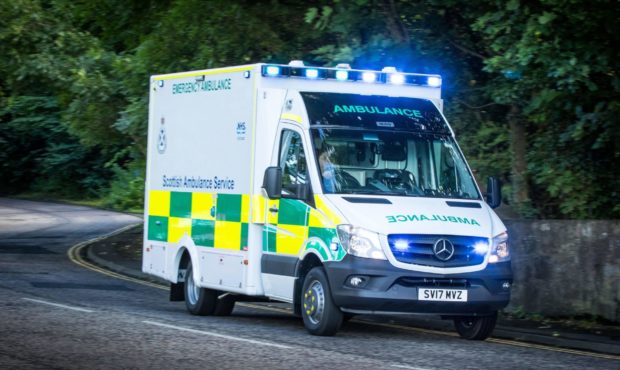Around 634 working hours were lost last year by ambulance staff in Perth and Kinross dealing with stress, anxiety or depression, new figures reveal.
The figures – from a Freedom of Information (FOI) request submitted to the Scottish Ambulance Service – show the number of hours lost between March 1 2020 and February 28 this year.
‘Not surprising’
Liz Smith, who represented Perthshire South and Kinross-shire, described the figures as “worrying”.
The Conservative MSP said: “This last year has been unprecedented for almost all of us, so it is not surprising to find out that some ambulance crews suffered from issues such as stress, anxiety and depression during the pandemic.”
Support provisions
The Scottish Ambulance Service says it has implemented a programme to support its staff members.
It includes wallet-sized cards with key mental health contacts, counselling services through its employee assistance programme, and a chaplaincy service.
Meanwhile, the ambulance service’s staff-written blog and yoga sessions offer further support.
A spokesperson said: “We take the mental health of our staff very seriously, which is why we have developed a robust programme to support them.
“Managers work closely with staff to encourage them to report any concerns about their welfare and we provide assistance and funding for staff seeking professional counselling services and occupational health services.
The Scottish Ambulance Service has and continuously reviews a varied range of support tools aimed at staff in relation to mental health-related illnesses.”
They added: “Our staff work incredibly hard, helping patients and saving lives every day. We understand the pressures they face and during the pandemic we’ve increased the range of wellbeing support available to our staff.”
Support welcomed
The support programmes put into place were praised by Ms Smith.
“The support for ambulance crews who are suffering from mental health issues has to be welcomed,” she said.
“I am very impressed by the effort and measures taken by the Scottish Ambulance Service to offer help and support to any employees who have struggled with mental health during Covid-19.
“This kind of support is so valuable, and it is good to see they have embraced modern programmes such as mindfulness, yoga sessions, wellbeing sessions, and links to useful websites as well as providing psychological ‘first aid’.”
She added: “I was also delighted to hear that the Scottish Ambulance Service is utilising drama-based methods to help staff with mental health problems and pleased to know that they have started to identify health and wellbeing provision through meetings with Police Scotland and the Scottish Fire and Rescue Service.”
